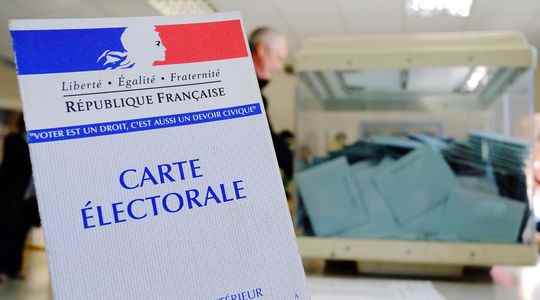“Whatever their motives, absentees are always wrong.” This is underlined by Jean Beuve, Étienne Fize and our columnist at L’Express Vincent Pons in a note from the Economic Analysis Council analyzing the causes and consequences of abstention. Without this coming as a real surprise anymore, as the phenomenon has become more commonplace over the course of the elections, the legislative elections were marked by high abstention (52.49% in the first round on June 12 and 53.77% in the second round on June 19 ).
Jean Beuve, Étienne Fize and Vincent Pons recall “that after more than two centuries of expansion of the right to vote, we have been witnessing for several decades an increase in abstention in almost all democracies.” This decline in participation “is taking place both in France and among its European neighbors, including in more recent democracies such as Portugal”. In France, the fall in participation “began in the 1970s and was continuous. Today it affects all types of elections”. According to the authors of this note, it is logical “to worry about this phenomenon” insofar as “low participation undermines the legitimacy of elected officials and reduces their representativeness”.
In an attempt to remedy the rise in abstention at each ballot, the authors propose several “ambitious” but “easy to implement” measures, which “will not cause excessive expense”. These include automatic registration for all on the electoral lists. In 2017, more than 23% of individuals of voting age were unregistered or incorrectly registered – in other words citizens registered at an address other than that of their main residence, most often following a move – recall they in the note. According to INSEE, 94% of French people of voting age were registered on a list in 2021. The fraction of non-registered people (6%, or around three million people) is relatively stable over time, but it differs from one socio-demographic group to another.
Currently, each Frenchman who becomes an adult is automatically registered on the electoral list of his municipality, provided that he has carried out his citizen census at 16 years old. If automatic registration could not take place, a request must be made to the town hall. The authors of this note published by the Economic Analysis Council therefore suggest “automatically registering all French people over the age of 18, regardless of their particular situation, and, above all, automatically re-registering all French people after each move, as is the case in most of our neighboring countries.”
An electoral calendar “reduced to only three cycles”
Another proposal made: the simplification of the electoral calendar. The authors’ idea is to “reduce it to just three cycles”: national elections (presidential and legislative), local elections (regional, departmental, municipal) and European elections. According to them, “such a simplification of the calendar would reduce the number of voting days by 40%”. “By reducing the cost of voting and increasing its benefits (since each trip to the polling station would allow voting for several elections), it could reduce intermittent abstention,” they believe.
They also propose “to encourage electoral mobilization and field campaigns”, such as door-to-door, or even to “renew civic education and give it more resources”. “Many studies show that citizens get into the habit of voting – or abstaining – from the first years of their adult life. For this reason, the education received during adolescence and learning the trade citizens can prove to be essential”, detail Jean Beuve, Étienne Fize and Vincent Pons.
In addition, the opening of the vote at 16, a measure which “deserves at least to be seriously debated, could also facilitate democratic learning”. “Like the other solutions discussed, this reform is not a miracle cure. But, combined with a revival of civic education, it could help to reduce the erosion of the sense of civic duty and, thus, to stem the constant increase in electoral abstention”, they want to believe.
Without going so far as to propose compulsory voting combined with pecuniary penalties, which exists in many countries such as Belgium, Australia, and several South American states, the authors recall, they believe that, “well applied, this measure would increase participation significantly”. “The idea would therefore deserve a serious debate, but it seems too unpopular in France today to be feasible in the short term”, believe the authors of the note. They also “left aside” two reforms of the voting rules often mentioned to increase the perceived benefits of the vote: the recognition of the blank vote and the introduction of more proportional representation.
